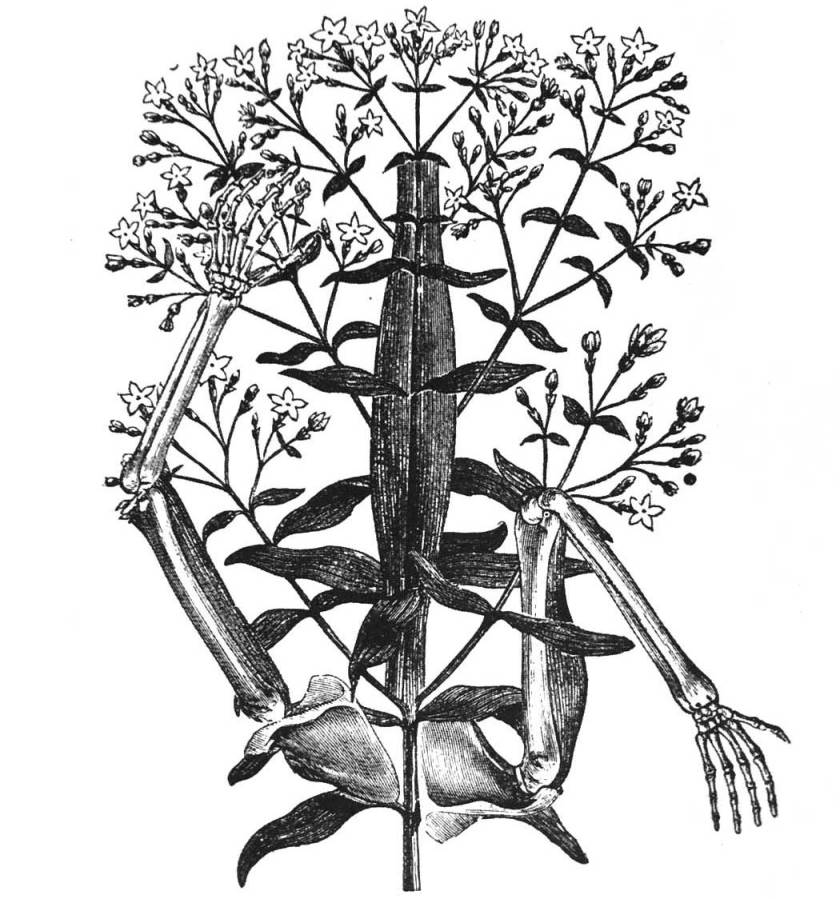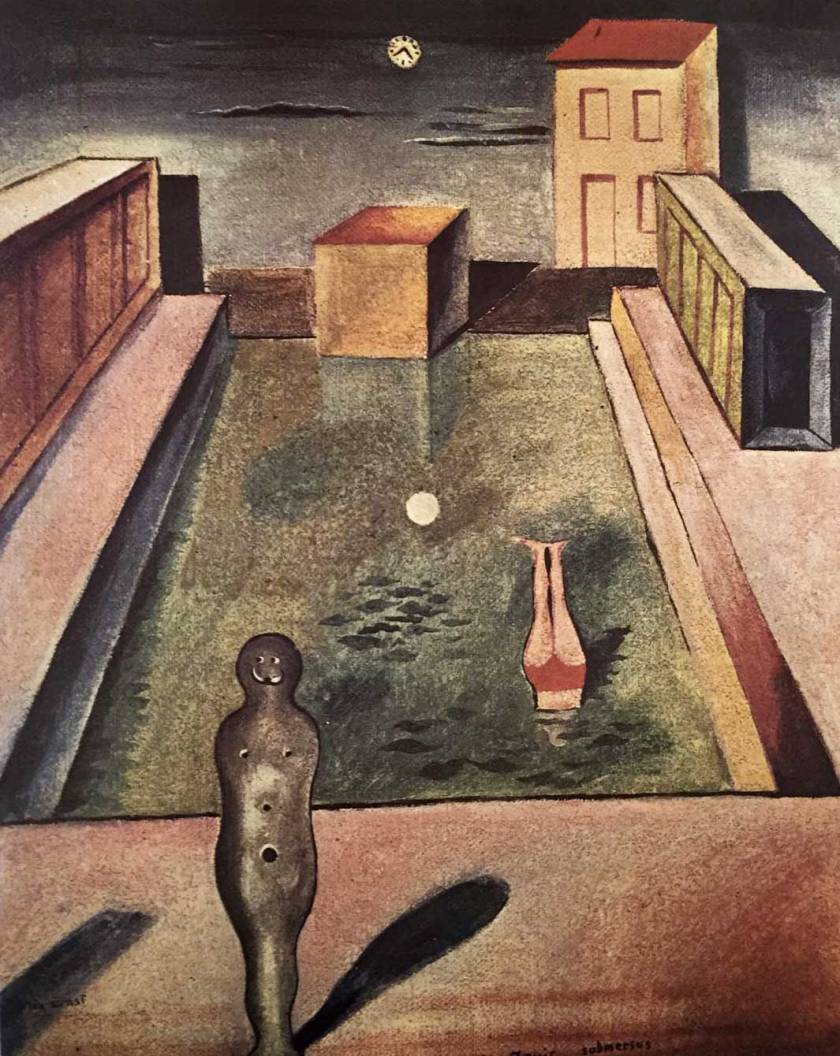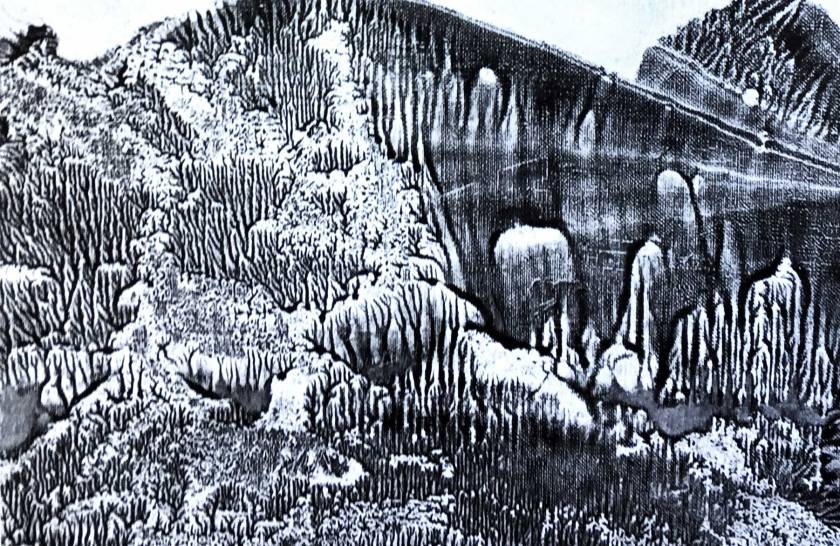 Max Ernst
Max Ernst
« What do you do in life? » It’s a very simple and casual question. But also one that tells about our identity and our role in society. We usually answer with our job. It makes sense. Well… we used to answer that. Was that making any sense?
I started writing this article several months BC (Before Coronavirus), and I’m surprised to acknowledge how quick the mechanisms I was trying to demonstrate here have been revealed by this virus that forces us to drastically slow down and stop all of our permanent restlessness.
In search of meaning
More and more people are questioning about « what to do » but also about « life. » What do we really do each day? What do we do with our talents, our values, our desires and our lives? Where do we put our energy, to what goal and to whose profit? Those questions seem even more important in the sheltering in place context. What are the things we do that are the most meaningful?
Everybody has read stories about people « changing lifestyle ». They leave their work, the one they had studied for, and embark on a new activity they know nothing about, and still have everything to learn about.
Could this be the real attraction for changing lifestyle? Learning new things every day, instead of repeating things you already know.
I think we need to go beyond the glamorous or romantic aspects of those radical shifts. We need to integrate those stories into a global perspective where everybody can be an enthusiastic active participant to a common project that is our future.
Each generation questions the one that precedes it. Our parents and grand-parents usually spent their whole life working in one job, and reached retirement. Not all careers are as linear as that, but that was the main trend : first you worked, then you enjoyed well-deserved free time.
Mostly influenced by the environmental crisis and social media, our generation is looking for meaning, projecting new work and life ideals. The sanitary crisis that we experience, and the economic crisis that’s starting to happen, are forcing us to reflect even further on those questions:
What does my work do? What are the consequences of this work on my life? But also as a collective standpoint: What is the impact of my work on society and the planet? What’s a job altogether?
In search of time
In BC era, our only relationship to time was a lack of it. While locked down imposed by Coronavirus, the irony is that we suddenly experience its radical opposite : having too much of it and not knowing what to do with it…
Questions of time and work are intimately related. As Mona Chollet states it in Chez Soi: « The impossibility to gain self-esteem unless you find a way to sell your working capacity can lead to pure masochism, and love of exploitation. Once the Protestant ethics was imposed, taking advantage of life, « wasting your time » could no longer be done without guilt. » But time is not « money » as Chollet says, time is life! Now that we are doomed to use our time differently, we realize how much our frenetic rythme was imposed by a capitalistic economy, which always wants people and things to go faster.
« The future is not what will happen but what we will do. » – Henri Bergson
The way we perpetually project into the future makes us forget the present moment, even despises it. Yet it is the only thing that we can really benefit from and that we can influence. « When I returned to North America from my travels among traditional peoples in Indonesia and Nepal, I quickly found myself perplexed and confused by many aspects of my own culture. (…) Everybody that I knew seemed to be expending a great deal of efforts thinking about and trying to hold onto the past -obsessively photographing and videotaping events, and continually projecting about the future- ceaselessly sending out insurance premiums for their homes, for their cars, even for their own bodies. As a result of all these past and future concerns, everyone appeared to be strangely unaware of happenings unfolding all around them in the present. »
In The Spell of the Sensuous, David Abram talks about the environmental awareness that all living beings share through sensorial and sensual perceptions. It has not been so long since human societies have been deprived from their intimate contact with nature. But this radical split is what makes us unaware of the impact our lifestyles have on the destruction of all other living beings. The current global pandemic forces us to recognize the power of interconnection between the living, but also the visceral lack humans feel when they are deprived of natural environments.
This brutal slowdown and restriction of our lifestyles is a unique opportunity to think about what we could do differently. Because, as French philosopher Bruno Latour says, « if everything is stopped, everything can be called into question ». « The first lesson of Coronavirus is also the most astonishing: the proof is made, in fact, that it is possible, in just a few weeks, to suspend everywhere in the world and at the same time, an economic system of which we were told that it was impossible to slow down or redirect. » The philosopher offers everyone to participate in an inventory to imagine ways to fight against production returning as it was before the crisis. Here are the first questions:
 Max Ernst
Max Ernst
# 1: What activities that are now on hold would you not want to see resume? # 2: Describe a) why you find this activity harmful / unnecessary / dangerous / inconsistent; b) how would its disappearance / substitution make other activities that you favor easier / more coherent? # 3: What measures would you recommend so that the workers / employees / agents / entrepreneurs who can no longer continue those activities are transitioned to other activities? # 4: What are the activities now on hold that you would like to see starting again ; or those that should be invented instead?
Volunteer work
3 years ago, I reached a point of non-return in my body that made me decide to go to Costa Rica for 6 months (see here). I had the desire to discover this country, to be in its climate and landscapes. But I was also looking forward to being in close contact with its plants, its animals and all forms of living.
I knew that Costa Rica had made environmental protection its national priority for a long time, I researched about places and projects across the country where I could do eco-volunteer work. I had worked « very full time » for 7 years and I felt drained of my vital energy. I needed to recharge my body, my brain and my sensory batteries.
I felt a visceral need rise inside: I want to SLOW DOWN. I don’t want to be locked in an office all day anymore. I want to be outside, in contact with the sun, the wind, the people, the sounds and the colors. I no longer want to be an employee. I want to collaborate with people in ways based on trust and free from money. Put my energy into projects that make sense and that welcome me kindly, where I can feel both useful and free.
I wanted my time to become a currency to trade in order to gain new knowledge and live sensory experiences.
 Max Ernst
Max Ernst
And what best animal to slow down than the turtles?! I had chosen my totem animal, knowing that it would allow me to spend my nights and days on the beach. I wanted to choose the environment first, a place where I feel really good, and the type of work will suit me.
During my travels, I met a ton of young Germans, most of the time 18 or 19 years old. In Germany, after high school kids are encouraged to volunteer for a full year before going to university. Their applications for university require some participation as a volunteer in Germany or abroad.
When you volunteer, you are choosing to work (for something that appeals to us or that makes sense), which is very different from having to work (to pay the bills and feed the family). The volunteer experiences I had in Costa Rica entirely reshaped my understanding of working and money. In exchange for a few hours of work a day, my basic needs were met. I was fed and accommodated in a little paradise, and spending no money.
« Everything is free. Choose your action. » – The Diggers
I recently discovered the Diggers, a community-action group of activists based in San Francisco. From 1966 to 1969, they radically transformed life in Haight-Ashbury by advocating radical freedom and free access to basic needs. They housed, dressed and fed all those who wanted to join them and perform together actions of « guerrilla theater » in the streets. They believed in a society of abundance and collaboration where each one would choose his actions according to his talents and his desires.
The reward that work gives us is money. With this money we buy products and experiences that shape our lifestyle. More often (when we have the chance) we choose careers or wages, over places and life balance. What if the reward that our work brought us was no longer a salary, but the assurance of a balanced, soft and sustainable lifestyle?
I dream of a lifestyle where personal commitment is combined with time for oneself. And of a way of working where we can claim our time back and put it to serve things that are important and make sense. Because ultimately the question is not « what do we do in life » but « what do we do WITH OUR lives. »
More
- Max Weber, « The Protestant Ethic and the Spirit of Capitalism »
- Bruno Latour, « Imaginer les gestes barrières… », AOC
- Mona Chollet, « Chez Soi, Une odyssée de l’espace domestique » , éditions Zones
- Documentary : « The Diggers of San Francisco »
- My article : « The body knows »
- My article : « Manifesto »
- My article : « Work differently 2/3 »
- My article : « Work differently 3/3 »